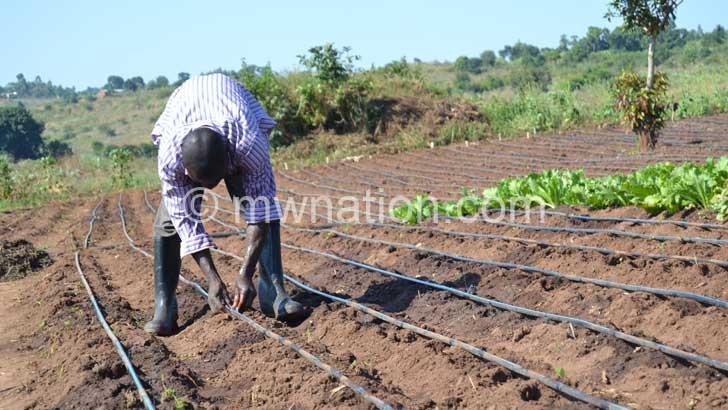Think-tank tips MW On agro-investment
A policy brief from Agricultural Policy Research in Africa (Apra) has faulted Malawi’s investment model in agribusiness, stating that limited access to finance and poor information on available funding sources constrain agro-investment.
Apra has since urged government to support the creation of a tailor-made financial institution or enable an existing institution to introduce a tailored service that would ease access to business finance for investments in agriculture and agribusiness.
The policy brief titled Inducing Agribusiness Investment in Malawi: Insights from Investors, was jointly compiled by governance and policy expert Henry Chingaipe, Joseph Thombozi and Horace Chingaipe.
It suggests that the administration of incentives needs streamlining, particularly processes, clarity of entitlements and eligibility criteria and a robust monitoring and evaluation framework that supports evidence-based incentive schemes.

Reads in part the policy brief: “Government investment policy should address structural factors, rules and policies that negatively affect the business environment to make the climate for investment in agriculture and agribusiness generally conducive and enabling instead of providing largely ineffective fiscal incentives.”
The brief says to spearhead transformational agricultural commercialisation, the Malawi Government should streamline its business incentives to encourage private sector enterprises to adopt inclusive business models that connect a large number of smallholder farmers to reliable markets that pay decent prices.
On a positive note, the brief says incentives that support inclusive business models and the creation or provision of access to structured farm produce markets for smallholder farmers were more transformative and economically empowering for smallholder farmers.
It also notes that when agribusinesses attempt to take up incentives, many find their administration to be cumbersome because different institutions are involved.
It adds: “The government should undertake reforms to increase certainty and predictability in the administration of business incentives by reducing the latitude of discretion of bureaucratic and political executives in the granting of incentives.
“Monitoring and review of the uptake and effectiveness of incentives is also almost non-existent, meaning that there is little potential for learning or for improving policy impact.”
In his 2020/21 National Budget Statement, Minister of Finance Felix Mlusu said government will continue with reforms to facilitate an enabling environment for investment.
He said: “In terms of investment promotion and private sector development, during the 2020/2021 financial year, government plans to develop the National Investment Policy through the Agriculture Commercialisation Project.
During engagement with Vice-President Saulos Chilima on reforms last week, Ministry of Industry officials proposed new reforms aimed at creating an enabling environment for enhanced productivity and competitiveness.
The reforms are also expected to spur the growth of small and medium enterprises, cooperatives and industries as well as the establishment of an Industrial Research and Innovation Centre to spur industry-related development.
Agriculture is the bedrock of the country’s development strategy, absorbing more than 80 percent of the labour force and contributing about 30 percent to gross domestic product.





